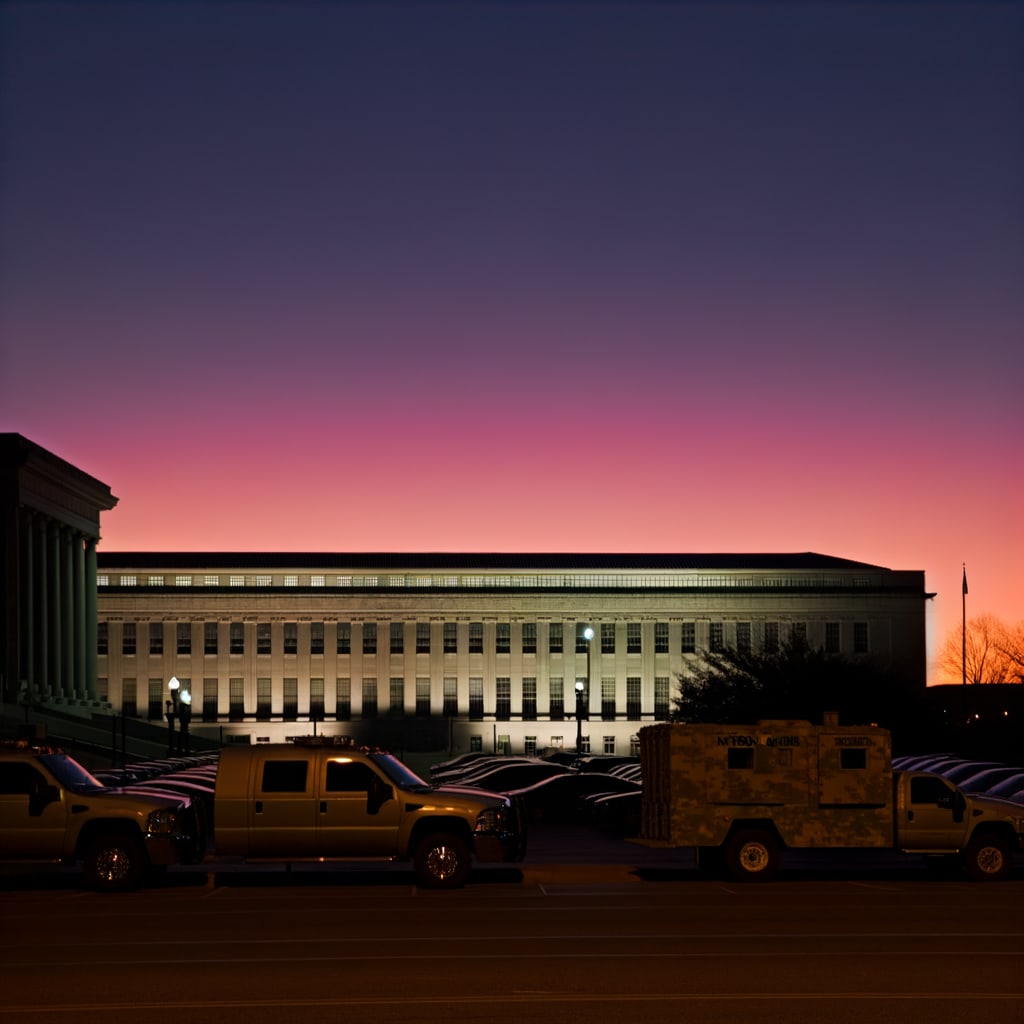Trump Announces Deployment of National Guard to Memphis Amid Crime Concerns
In a move that has drawn both praise and criticism, President Donald Trump announced on Friday that the National Guard would be deployed to Memphis, Tennessee, as a part of his nationwide anti-crime initiative. This decision follows a similar deployment in Los Angeles and Washington, D.C., and comes in response to Memphis having the highest reported crime rate in the country among cities with over 250,000 people.
Background and Context
In his announcement, made on Fox & Friends,
President Trump indicated that the deployment might not be confined to the National Guard and could include the Army if necessary. This announcement comes as Memphis struggles with a high crime rate, with the FBI reporting the city as having the highest crime rate in the country.
Key Developments and Details
Sen. Marsha Blackburn, R-Tenn., praised the president's decision, stating, Today, President Trump answered my call to do whatever it takes to Make Memphis Safe Again.
She applauded his decision to send the National Guard to Memphis after what she termed as his tremendous success in reducing violent crime in Washington, D.C.
However, Rep. Steve Cohen, D-Tenn., criticized the plan, stating that the real solution to the city's crime problem lies in better investments in proven programs.
He deemed the announcement as the premiere of the Trump Show 2.0,
suggesting that the move is more about Trump presenting himself as a tough guy than about solving the city's crime issues.
Implications and Reactions
The move has predictably drawn contrasting reactions from different quarters. While Sen. Bill Hagerty, R-Tenn., welcomed the announcement, stating that it has garnered bipartisan support in the city, others have voiced concerns.
On one hand, the deployment has been seen as part of Trump's strategy against crime in Democratic-run cities. On the other, critics argue that the move is a political gesture aimed at painting Trump as a strongman. The Mayor of Memphis had previously requested financial resources to address the city's problems rather than military intervention.
In a more neutral tone, John Vergos, co-owner of a local restaurant in Memphis, said his city is no better, no worse than any other city.
He sees the deployment as potentially having a positive impact if it is constructive
in nature.
Conclusion
As the situation unfolds, the impact of the National Guard's deployment on the crime situation in Memphis remains to be seen. While some view this as a necessary measure to restore law and order, others fear it could escalate tensions and harm local businesses. Amid these contrasting views, the city of Memphis braces for what comes next in this developing story.

